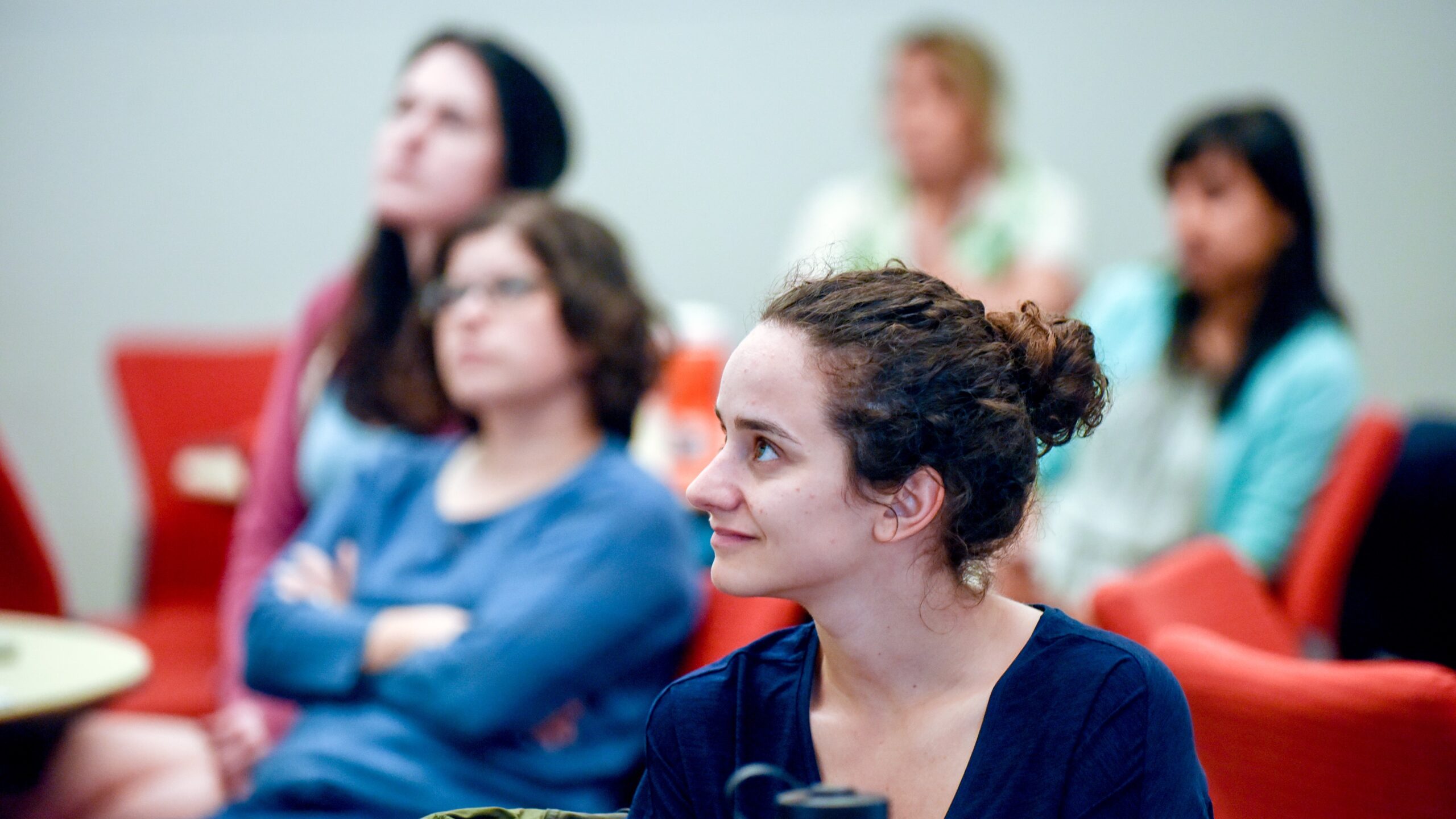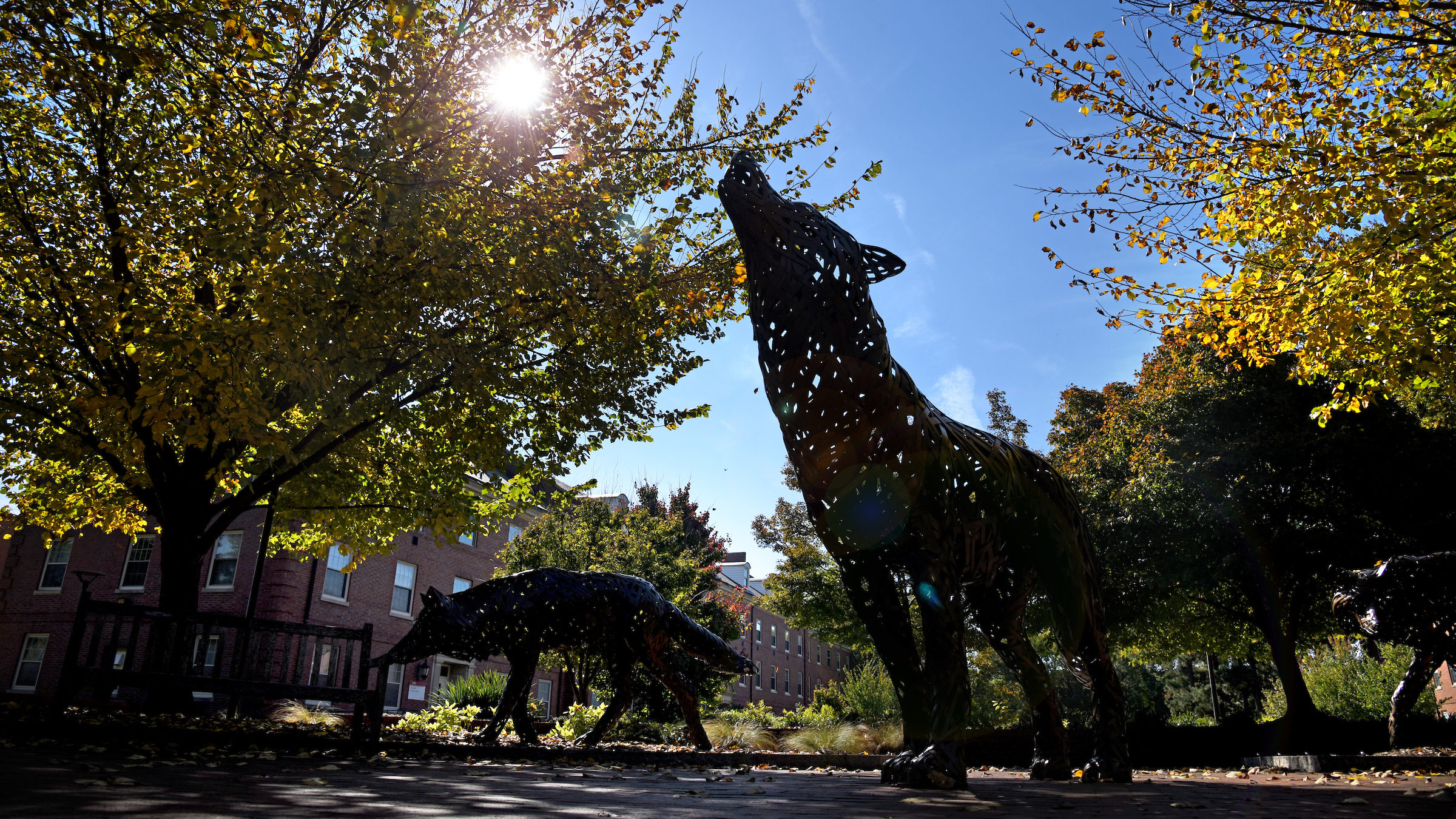Alumni Insights: An Hour with Betty-Shannon Prevatt
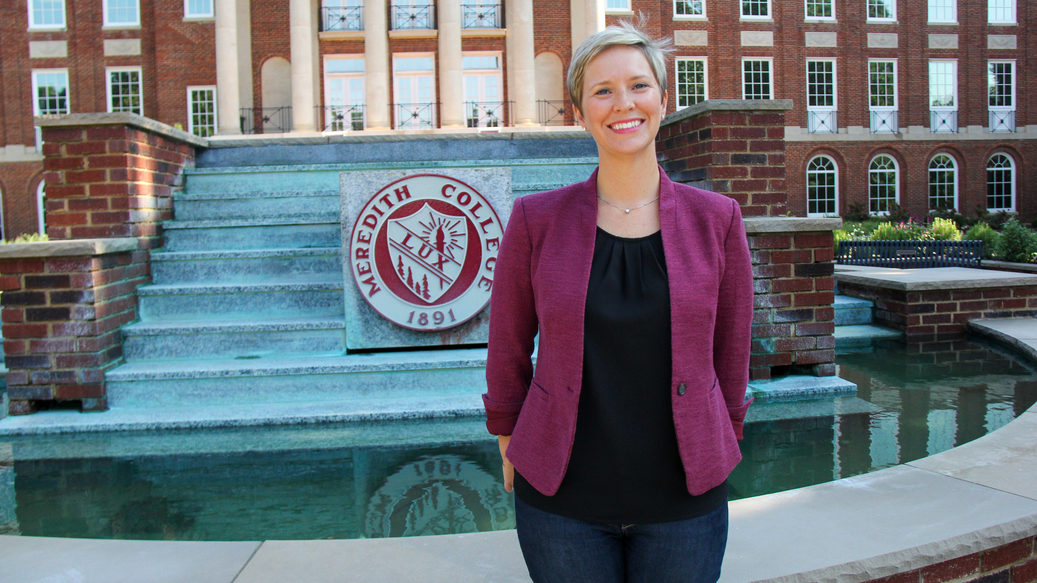
In her cozy, navy-painted office at Meredith College, NC State University alumna Betty-Shannon Prevatt, assistant professor of psychology, tells me that “this was always the plan” to return to her alma mater. She points to a white board behind me that contains her various current research interests: gamification, diversity in psychology, centering pregnancy, hispanic mothers, perinatal women in prison, etc.
She talks about her love for teaching, for women’s reproductive mental health, and for helping especially marginalized students and mothers who may not be getting the resources they need. Prevatt explains how she finds time to explore all of these research interests on her own time and also craft and teach the courses of her academic dreams. Prevatt delights in life at a small liberal arts college, or SLAC as she calls it, because of the freedom she gains to pursue her passions.
Prevatt’s Road to Meredith
Prevatt graduated from Meredith in 1999 with a B.A. in psychology and a minor in women’s studies. She immediately went to East Carolina University for her graduate degree in clinical psychology and practiced for years following her 2001 graduation in a number of settings: neuropsychology, Meredith’s counseling center,and then her own private practice with a focus on reproductive mental health including topics such as infertility and postpartum mental disorders. After adjuncting in various teaching roles for supplemental funds, Prevatt discovered her love for teaching.
Prevatt also notes that in her clinical practice, she “didn’t have the research ‘chops’ to answer some questions that kept coming up.” This desire to be more helpful in sessions as well as wanting to explore ways to bolster local community interventions for soon-to-be and postpartum mothers led her back to the graduate school at NC State for her doctorate in psychology.
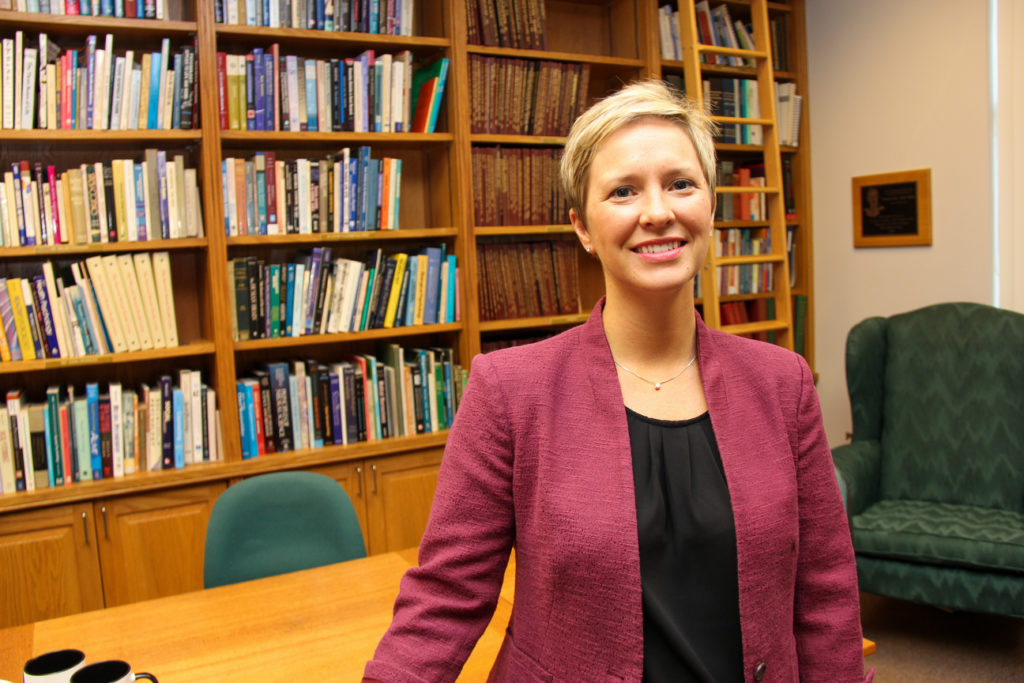
Teaching & Research at Small Liberal Arts Colleges (SLACs)
At Meredith, teaching is the main focus for faculty, says Prevatt. There is of course research involved as a professor, but Prevatt notes that one “definitely needs to carve out that research time” and there is a little less financial support than there would be at an R1 school. However, Prevatt notes with a smile that she wanted a teaching focus and enjoys the slower pace of research since her focus is in community groups where observations and interventions take longer to collect and assess.
“Yes,” she says, “research does happen, but it’s just slower. The financial ‘pot’ is smaller… The reproductive health side of [research] just takes longer, because for me… I’m getting into the community, I’m building those relationships — it’s not [as simple as] a survey form. I need to get real moms to meet with me… so that’s a slower process.”
Meredith has fostered Prevatt’s love for pedagogy (the method and practice of teaching) as well. She states that the focus on teaching gives her the chance to investigate “what works for teaching [and] doesn’t work” and she says,
…much like I don’t want to prescribe a treatment for someone if it isn’t evidence-based, doing something for someone in the classroom that isn’t evidence-based…? Why would that be okay?
“So right now,” she notes, “my focuses in teaching are around gamification and use of supplemental materials for engagement for students in the classroom.”
Prevatt emphasizes how Meredith makes these classroom-based research interests possible and how the smaller atmosphere creates more room for professional autonomy with course design (such as in reproductive mental health), more focus on students and advising, and feeling like one’s input on a faculty team is heard. In this way, she is “not only meeting a personal desire, but also feeding a need in the community.”
Preparation for the Academic Job Market
Prevatt discusses her time at NC State as incredibly engaging with research and mentoring opportunities. When asked what she gained from her time at NC State, she emphasized the value of the university’s “gold standard” of research training. This experience impressed employers at institutions where she interviewed. This research wasn’t just centered in a lab either, she clarifies, but on the community and statistical approach to research as well, making her a more well-rounded professional. Prevatt lauds her “superstar” mentor, Sarah Desmarais for her support and further research training.
Prevatt appreciated the Professional Development team’s Preparing the Professoriate program where other doctoral students and postdoctoral scholars were immersed in a rich future faculty experience, filled with teaching, planning, mentoring, and general preparation for life as a faculty member.
Tips from Prevatt for Prospective Professors
She emphasized the need for graduate students and postdocs who are interested in pursuing an academic career to mentor undergraduates, guest lecture, and get as much direct teaching experience as you can. While the research and publications may be impressive, she clarifies, the teaching experience and expertise is essential.
How can I get more teacher training?
Prevatt suggests:
If you are already a teaching assistant…
- Mentor your students! Talk about your research in class and let students know they can assist if it’s something that interests them.
- Ask your students about their areas of research interests. Offer help.
- Reach out to students, especially those who might not know when to seek help.
If you are not already a teaching assistant…
- Attend the teaching-related workshops and seminars offered by the graduate school.
- Find a faculty mentor and ask to work with some of their undergraduate students in research endeavors.
- Ask your colleagues who are TAs if you can guest lecture in their classrooms
- Take any and all opportunities extended to you to get more teaching practice.
Even if you are applying to a lab-focused faculty position, experience in teaching/mentoring and communication can be a make-or-break criterion for employers!
How can I get an academic faculty position?
For those who are interested in obtaining an academic faculty position after your graduate and postgraduate training here at NC State, Prevatt advises:
- Follow the major listservs such as…
- ChronicleVitae,
- HigherEdJobs,
- Higher Education Recruitment Consortium (HERC),
- Academic Wiki, etc.
- See Interfolio’s article for more suggestions
- Talk to the junior faculty at prospective colleges and ask them what the culture and expectations are for that school/department
- Find out what the career growth/trajectory looks like for your position (what do you need for tenure? Is there room for creative course design? etc.)
- Be open to collaborating with other teachers and/or departments!
- Small colleges especially value one’s ability to collaborate because it illustrates how one gets the most out of their resources
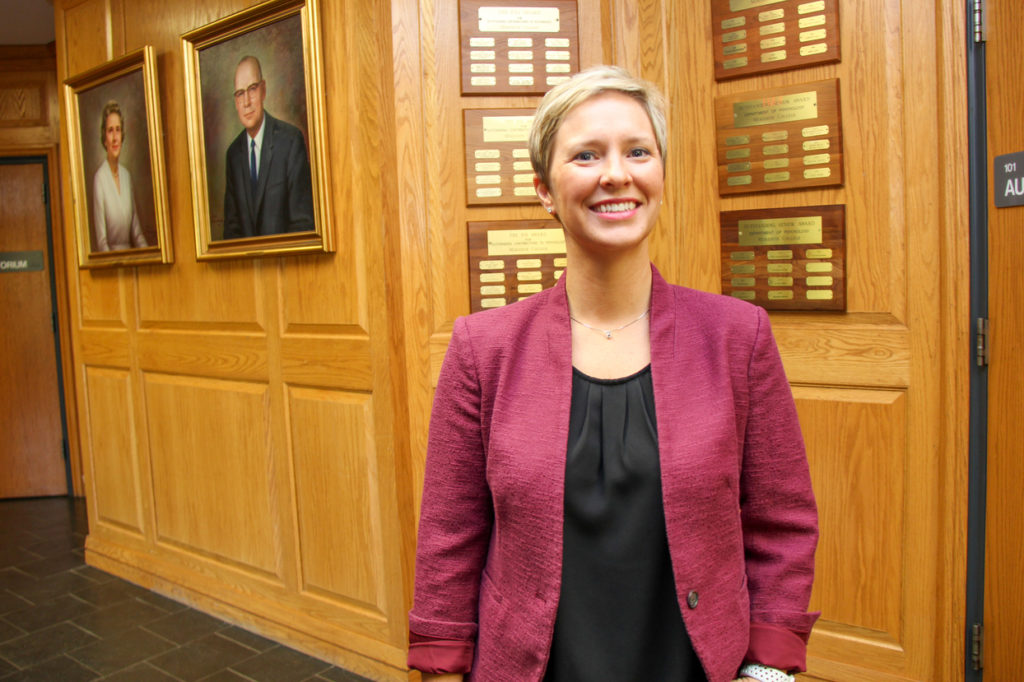
If you are interested in applying to a small liberal arts college
Prevatt clarifies that the expectations are different from those of more research-focused areas. At R1s, publications in top-tier journals and devoted time and energy toward research is the primary focus while at a liberal arts college, professional productivity in teaching and community efforts are more valued.
Prevatt points out that “top-tier academic journals may not be the most efficient way to translate research findings into real-world interventions. Involvement in the community through local conferences and community presentations can be a more effective way to reach front line providers like public health and social workers and thus may be more valued by the institution as a means of professional productivity.”
Finally, what makes a good instructor?
Prevatt notes the importance of humility for teachers, knowing when to say “That’s a great question and I don’t have the answers to that. Let’s explore it!” Along with humility she emphasizes the following skills she uses in her everyday teaching and research:
- Comfort with an ongoing to-do list
- You will always be parsing time between your research and teaching no matter where you go.
- Giving space to make mistakes
- More humility! Be kind to yourself.
- Public speaking and communication skills
- Being able to not only read and comprehend content but also translate it for students in “bite-sized” pieces of information
- Figuring out what the necessary and most important content is.
- Being flexible and patient
Know an alumnus we should highlight in our next piece?
- Categories:

